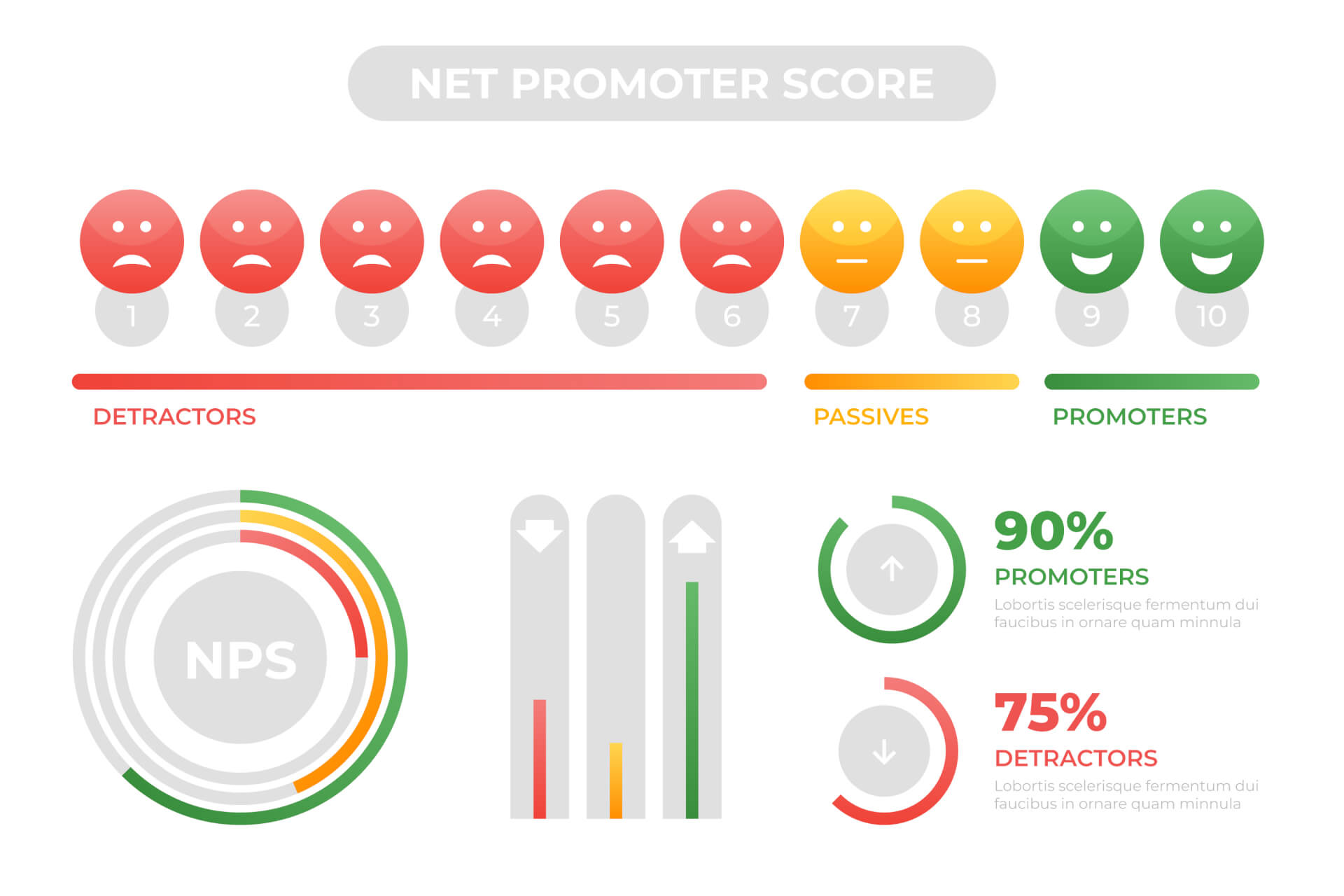One of the most common questions marketers ask is how the Net Promoter Score® differs from the type of data that can be extracted by examining people's reactions on social media platforms like Facebook, Twitter, and Instagram.
Basically, the question can be answered relatively easily, but it is worth looking at the topic in detail. The following explains how Net Promoter Score and Social Media responses differ as market research tools, and how both data sources can be used together to help your business grow.
Discussions on social media platforms such as Facebook and Twitter can be a strong, precise and therefore valuable signal of public opinion, regardless of whether it is aimed at a company, an event or an individual.
Social media a very sensitive barometer of public opinion, so it is not surprising that branding experts discovered during the last presidential election in the United States that social media has become a more valuable platform for market research than traditional advertising.
A statement that many experts in the tech industry would agree with. Social media has immense value in market research, both in terms of providing comprehensive insight into public opinion and in terms of providing a telescopic level of detail for marketers.
 But is social media an accurate indicator of whether or not real, paying customers are happy with a brand? Most likely not.
But is social media an accurate indicator of whether or not real, paying customers are happy with a brand? Most likely not.
Table of Contents
- NPS measures customer satisfaction, not public opinion
- With all its advantages, social media simply doesn't offer this.
- Social media can measure brand awareness, but not results
- Social media success doesn't always mean growth
- Keep an eye on social media, but focus on NPS
- Start calculating your Net Promoter Score with Callexa
NPS measures customer satisfaction, not public opinion
 The biggest difference between NPS and social media sentiment is that one measures how paying customers think about your product, while the other measures the public's attitude towards your product.
The biggest difference between NPS and social media sentiment is that one measures how paying customers think about your product, while the other measures the public's attitude towards your product.
As any business owner or marketer knows, public opinion doesn't always reflect the potential of a product or brand.
If you ask interested users before the launch whether they would use your product or not, they will get a lot of approval. If you ask the same customers to pay, the results will change immediately.
It is therefore important for a marketer or growth-minded small business owner to know how existing customers think of your product.
After all, they are the ones who pay for your product or service and give your business the opportunity to grow. NPS provides one-to-one contact with these people - the ones who drive your company's revenue, grow it and use the products and services it creates.
With all its advantages, social media simply doesn't offer this.
This unique benefit means that for a growth-oriented marketer or business owner, NPS offers several benefits that social media cannot.
Used effectively:
- NPS lets you know exactly what customers think of your product, including specific features they may or may not like.
- NPS explains exactly why you are losing customers (if you are) and what you need to do to win them back and reduce the overall churn rate.
- NPS helps you set actionable, realistic, and achievable marketing and sales goals that your team can work towards.
- Warns you of negative customer opinions before they can spread on social media and helps protect your brand's reputation.
- Social media monitoring can give you some insight into how the public thinks about your brand or product. However, it is a broad, general feedback from people who may or may not be your customers - something very different from the focused data that the NPS can provide as part of the customer survey.
Social media can measure brand awareness, but not results

Another key difference between NPS and social media as a market research tool is that they measure very different aspects of a company's marketing efforts.
NPS measures the quantifiable, measurable side of marketing - the thoughts and feelings of real, paying customers and their impact on your business.
Social media, on the other hand, is a far more accurate measure of the overall success of a company's branding efforts.
This is especially true for B2B industries as well as industries that are driven by results rather than brand image.
For example, Investment Banks and Financial Services companies, score consistently neutral or positive in NPS benchmarks, although they are rarely praised on Facebook or Twitter.
Even consumer credit reporting companies, an industry that is generally not very popular, has a higher Net Promoter Score on average than many of the world's most popular and loved brands.
In other words, being popular on social media doesn't necessarily mean that your paying customers have a positive opinion of your business. Social media can tell you if your campaign is working (or showing it isn't), but it's not a metric that will give you valuable results for improvement and growth.
Social media success doesn't always mean growth
 Finally, it's important to remember that companies who thrive on social media don't always thrive as a company.
Finally, it's important to remember that companies who thrive on social media don't always thrive as a company.
The internet is littered with failed businesses and countless Kickstarter campaigns that have garnered an incredible amount of viral attention through social media but haven't been implemented. Even large, highly profitable companies have failed to turn the social media buzz into a steady source of income.
A very good example of this is the much hyped Google Glass, which attracted the attention of almost all social media users, and yet failed as a new product line for Google. Audiences on social media attract the interesting and unique, but being interesting and unique doesn't always mean steady, sustainable growth.
Customer satisfaction, measured with the Net Promoter Score, does this. Typically, when a company leads its NPS industry, it will have an organic growth rate more than double that of its competitors.
Keep an eye on social media, but focus on NPS
 To sum up, while social media sentiment can play a useful role in growing your business and building brand awareness, it is not a primary metric that you can use to track growth in the same way that the NPS survey did can predict.
To sum up, while social media sentiment can play a useful role in growing your business and building brand awareness, it is not a primary metric that you can use to track growth in the same way that the NPS survey did can predict.
While social media can be a great barometer of how the public will respond to an ad campaign or new product, it cannot accurately predict the factors like user churn, organic growth, and customer loyalty that will drive your business forward.
Our advice? Keep an eye on social media - after all, it's an important marketing channel and a valuable source of insight into public opinion. But don't be distracted by the one number your business needs to grow.
Start calculating your Net Promoter Score with Callexa
With Callexa you can automatically survey your customers and calculate your Net Promoter Score. This way you can keep track of how paying customers think of your company and increase your retention rate.
To start surveying your customers, simply register for the permanently free Callexa Starter tariff and send up to 50 free NPS surveys per month, without any contract or long-term commitment.
 Reading recommendation: If this article helped you and you would like to find out more about the Net Promoter Score, continue reading here: “The Net Promoter Score – Basics and Areas of Application”
Reading recommendation: If this article helped you and you would like to find out more about the Net Promoter Score, continue reading here: “The Net Promoter Score – Basics and Areas of Application”